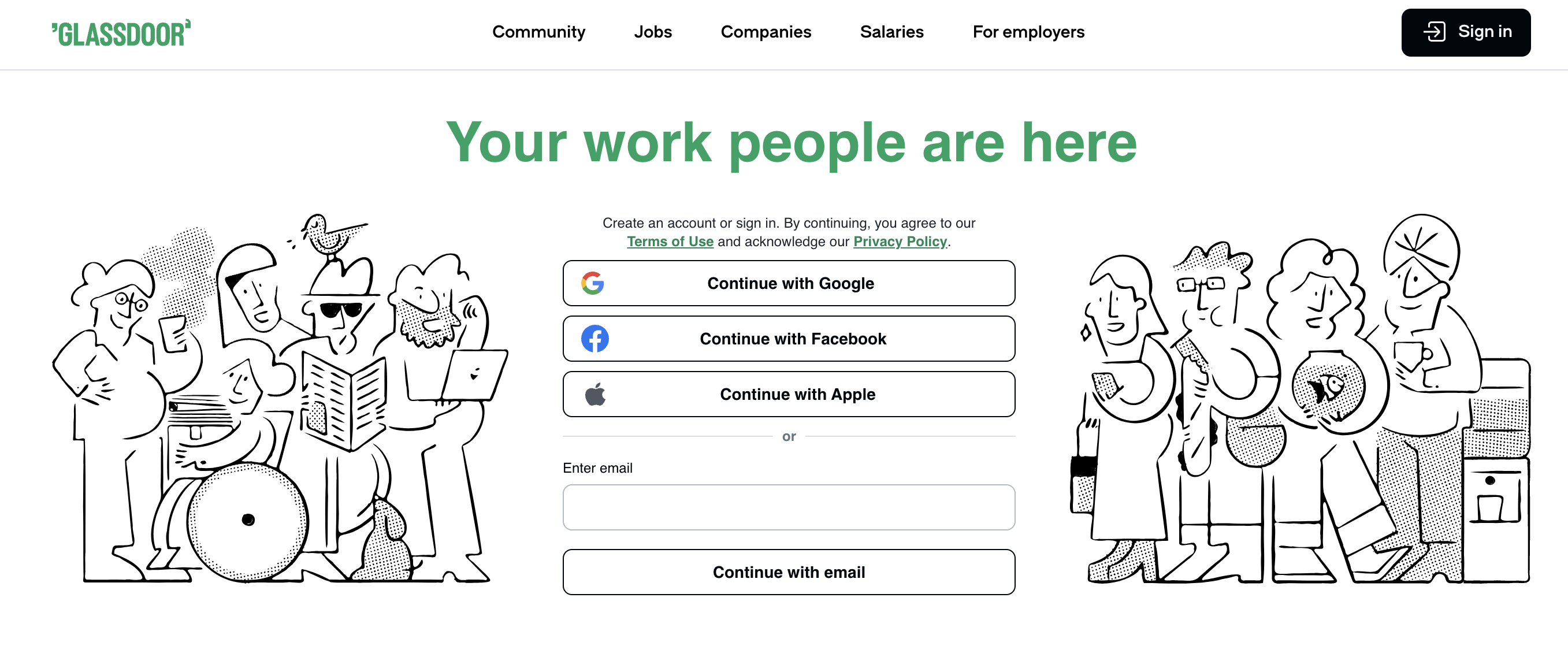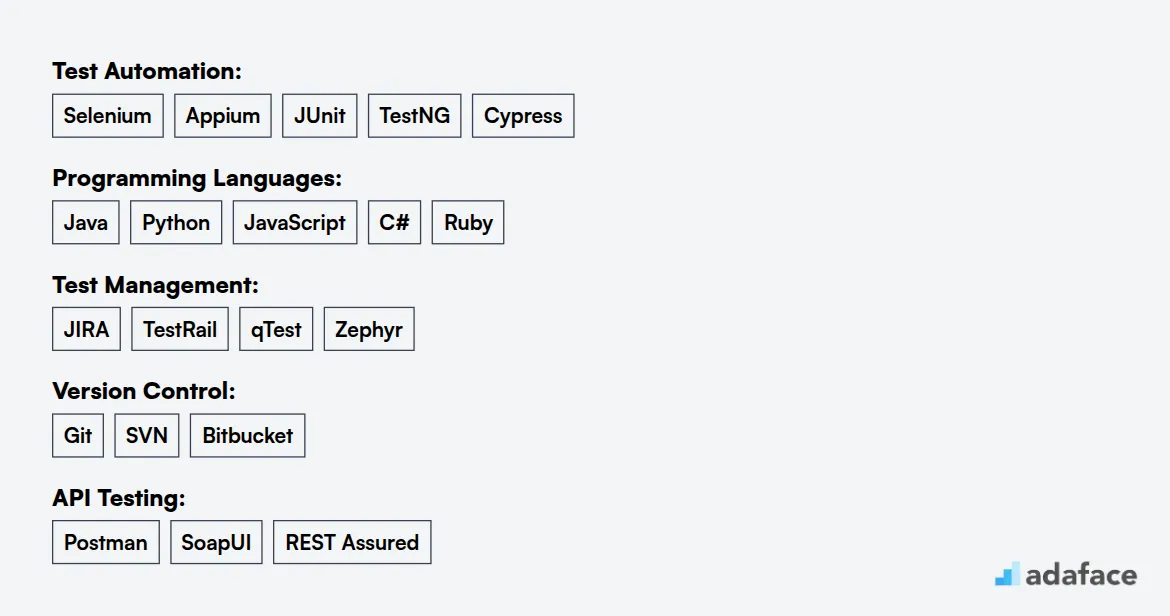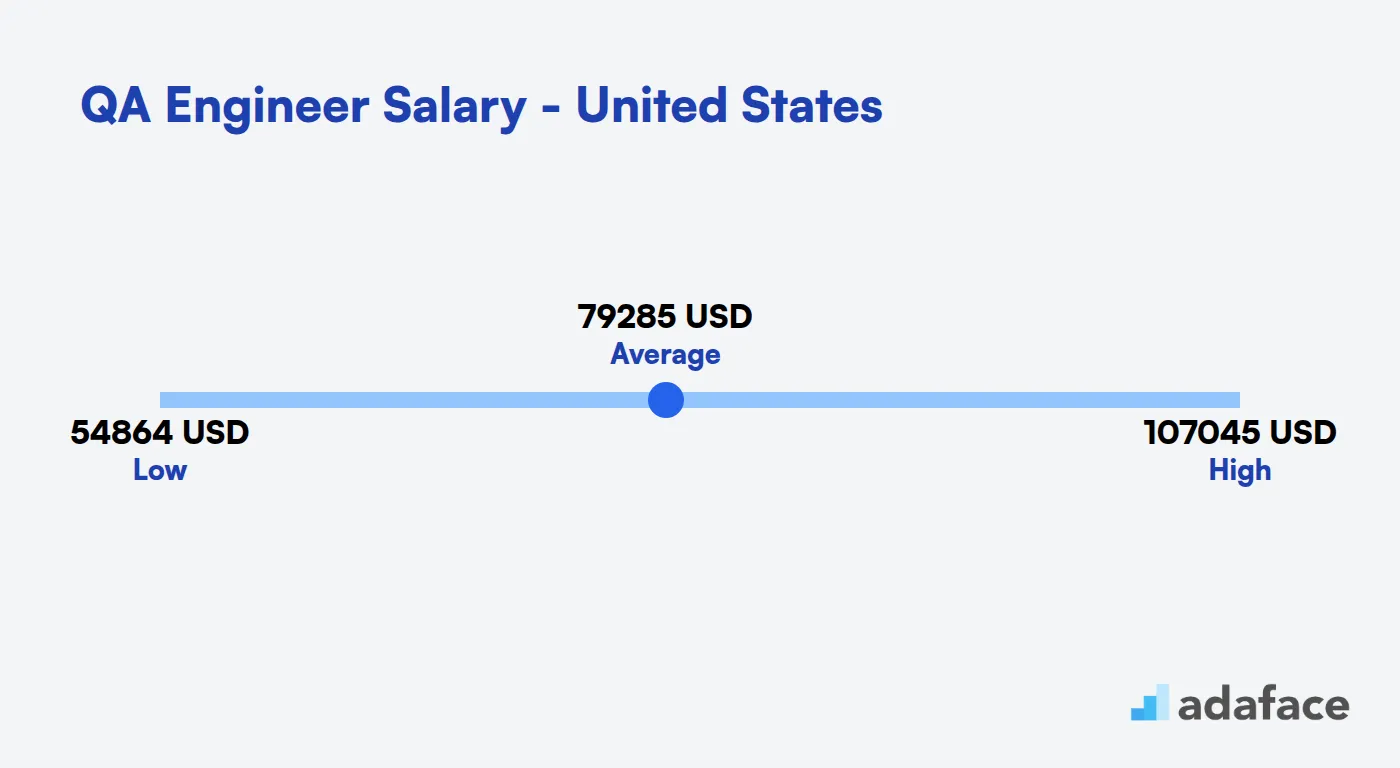Hiring a QA Engineer is more than just filling a vacancy; it's about ensuring the quality and reliability of your products and services. As a recruiter, understanding the nuances of the QA role and the specific skill sets required is crucial for finding the right fit. Many companies falter by not clearly defining their QA needs or by underestimating the importance of soft skills and the QA engineer's role in the development lifecycle.
In this article, we cover the comprehensive process of hiring a QA Engineer, from identifying key skills and qualifications to crafting an effective job description. We also explore the best platforms to find candidates and offer tips on screening resumes and conducting technical interviews. For more insights on QA skills, refer to our detailed guide here.
Table of contents
Key skills and qualifications for a QA Engineer
When hiring a QA Engineer, it's important to distinguish between must-have skills and nice-to-have qualifications. The ideal candidate profile can vary based on your company's specific needs and tech stack. Here's a quick guide to help you focus on the most relevant attributes for your QA Engineer role.
Required skills typically include a strong foundation in software testing methodologies, proficiency in test automation, and solid analytical abilities. On the preferred side, certifications like ISTQB or experience with specific tools can give candidates an edge. Remember, technical screening is crucial to verify these skills effectively.
- Required Skills and Qualifications:
- Bachelor's degree in Computer Science or related field
- 3+ years of experience in software testing or quality assurance
- Proficiency in test automation tools and frameworks
- Strong knowledge of software development lifecycle (SDLC)
- Excellent problem-solving and analytical skills
- Preferred Skills and Qualifications:
- ISTQB certification
- Experience with Agile methodologies
- Knowledge of CI/CD pipelines
- Familiarity with performance and security testing
- Experience in mobile app testing
Keep in mind that the top three skills to focus on are technical expertise, quality assurance methodology, and communication and collaboration. These form the core of a successful QA Engineer's skill set.
| Required skills and qualifications | Preferred skills and qualifications |
|---|---|
| Bachelor's degree in Computer Science or related field | ISTQB certification |
| 3+ years of experience in software testing or quality assurance | Experience with Agile methodologies |
| Proficiency in test automation tools and frameworks | Knowledge of CI/CD pipelines |
| Strong knowledge of software development lifecycle (SDLC) | Familiarity with performance and security testing |
| Excellent problem-solving and analytical skills | Experience in mobile app testing |
How to Write an Effective QA Engineer Job Description
Once you've outlined the ideal candidate profile for your QA Engineer role, it's time to craft a compelling job description. A well-written JD is key to attracting top talent in the competitive tech market.
Here are some quick tips to create a standout QA Engineer job description:
• Highlight key responsibilities and impact: Clearly outline the QA Engineer's role in ensuring software quality, conducting tests, and collaborating with developers. • Balance technical skills with soft skills: List required technical expertise like test automation tools, but also emphasize problem-solving and communication abilities. • Showcase your company's USP: Highlight unique projects, growth opportunities, or your innovative testing processes to make your offer stand out. • Be specific about qualifications: Mention preferred degrees, certifications, or years of experience to attract the right candidates.
10 Best Platforms to Hire QA Engineers
Now that you have crafted a comprehensive job description for your QA Engineer role, the next step is to list it on job platforms to attract top talent. These platforms are pivotal in helping you reach a wide pool of qualified candidates who can meet the needs of your business.
LinkedIn Jobs
Ideal for posting full-time QA Engineer positions. Offers wide reach and professional networking capabilities.

Indeed
Great for posting a variety of QA Engineer roles. Offers high visibility and a large pool of candidates.

Glassdoor
Useful for employer branding and attracting informed candidates. Good for full-time QA positions in established companies.

Beyond the initial three platforms mentioned, consider expanding your search to sites like Dice for tech-specific roles, or Upwork and Toptal for freelance and elite freelance QA Engineers. FlexJobs is great for remote positions, while AngelList Talent is perfect for startups seeking innovative candidates. Stack Overflow Jobs and ZipRecruiter also offer unique features with their tech-specific community and AI-powered candidate matching, respectively. For more on technical recruiting, you might find our technical recruiting cheat sheet insightful.
How to Screen QA Engineer Resumes
Resume screening is a key step in the hiring process, especially for QA Engineer roles where technical skills and experience can vary widely. It helps narrow down the list of potential candidates to those who meet the job's fundamental requirements, saving time and resources down the line.

When manually screening resumes, focus on key skills and qualifications like a Bachelor's degree in Computer Science, 3+ years of experience in software testing, and proficiency in test automation tools. Look for keywords related to test automation such as Selenium, JUnit, and Cypress, as well as programming languages like Java, Python, and JavaScript. These indicators will help identify candidates who have the necessary expertise.
Incorporating AI LLMs can streamline this process further. These tools can scan resumes for relevant skills and qualifications efficiently, helping you focus on candidates who closely match your job description. Using AI also reduces human error and ensures a more thorough evaluation of each application.
Here's a sample prompt to use with AI for screening QA Engineer resumes:
TASK: Screen resumes to match job description for QA Engineer role
INPUT: Resumes
OUTPUT: For each resume, provide following information:
- Email id
- Name
- Matching keywords
- Score (out of 10 based on keywords matched)
- Recommendation (detailed recommendation of whether to shortlist this candidate or not)
- Shortlist (Yes, No or Maybe)
RULES:
- If you are unsure about a candidate's fit, put the candidate as Maybe instead of No
- Keep recommendation crisp and to the point.
KEYWORDS DATA:
- Test Automation (Selenium, Appium, JUnit)
- Programming Languages (Java, Python, JavaScript)
- Test Management (JIRA, TestRail)
For more on how to effectively use pre-employment assessments in your hiring process, check out our skills assessments for recruiters blog post. You may also find our QA Engineer interview questions useful for further stages of the recruitment process.
Recommended Skills Tests for Assessing QA Engineers
Skills tests are an effective way to evaluate QA Engineer candidates beyond their resumes. They provide objective insights into a candidate's technical abilities and problem-solving skills. Here are five key tests we recommend for assessing QA Engineers:
QA Engineer Test: This comprehensive assessment covers various aspects of quality assurance, including test planning, bug reporting, and test case design. It helps evaluate a candidate's overall QA knowledge and practical skills.
Manual Testing Test: Use this test to assess a candidate's ability to perform thorough manual testing. It covers areas like test case creation, defect tracking, and test execution strategies.
Selenium Test: For QA roles involving automation, the Selenium online test is invaluable. It evaluates proficiency in using Selenium for web application testing and basic automation concepts.
Web Testing Test: This assessment focuses on skills specific to testing web applications. It covers areas like cross-browser testing, responsive design testing, and web security basics.
Programming Test: Many QA roles require basic programming knowledge. Choose a programming test in a relevant language (e.g., Python, Java) to evaluate coding skills for test automation and scripting tasks.
Recommended Case Study Assignments to Screen QA Engineers
Case study assignments are a popular method for assessing the practical skills of QA Engineers. While they provide insights into a candidate's problem-solving abilities and attention to detail, they also come with challenges. These assignments can be lengthy, resulting in lower completion rates and the potential loss of qualified candidates. Here are some sample case studies to consider.
Functional Testing Case Study: This assignment asks candidates to identify and report bugs in a given software application. It's recommended because it assesses the candidate's ability to conduct thorough and precise testing, which is crucial for maintaining software quality. Understanding the skills required for QA Engineers is integral to this process.
Automated Testing Scenario: Candidates are tasked with creating automated test scripts using tools like Selenium. This is recommended to gauge their proficiency in test automation, a key skill for improving test efficiency and coverage.
User Experience Testing Assignment: This case study evaluates a candidate's ability to assess the usability of a software application. It's important because it measures their insight into how user-friendly and intuitive the application is, which directly impacts customer satisfaction.
How to Structure Technical Interviews for QA Engineers
After candidates pass initial skills tests, it's time for technical interviews to assess their hard skills in-depth. While skills tests help filter out unqualified applicants, technical interviews are key to identifying the best-fit candidates for your QA Engineer role. Let's explore some effective interview questions to evaluate QA expertise.
Consider asking: 'Describe your approach to creating test cases for a new feature.' This reveals their testing methodology. 'How would you test a login form?' checks their attention to detail. 'What's your experience with automation tools?' assesses technical proficiency. 'How do you prioritize bugs?' examines their decision-making skills. 'Can you explain the difference between black-box and white-box testing?' verifies their understanding of testing concepts.
How much does it cost to hire a QA Engineer?
Hiring a QA Engineer can vary significantly in cost depending on location and experience. In the United States, the average salary is approximately $79,286. This salary can range from $54,864 in regions with lower compensation to $107,045 in areas like Johnson Creek, WI, where salaries tend to be higher. It's important to consider these variables when budgeting for a QA Engineer role.
QA Engineer Salary United States
The average salary for a QA Engineer in the United States is around $79,286. Salaries can vary significantly based on location, with the lowest reported at approximately $54,864 and the highest reaching up to $107,045. Areas like Johnson Creek, WI, tend to offer higher salaries, while regions like Barceloneta, PR, may present lower compensation packages.

What's the difference between a Manual QA Engineer and an Automation QA Engineer?
While both Manual QA Engineers and Automation QA Engineers are essential to the quality assurance process, their roles often get mixed up. This confusion typically arises because both roles target improving software quality, yet the way they achieve this goal is quite distinct.
A Manual QA Engineer focuses on designing test cases and conducting exploratory testing. They use tools like JIRA, TestRail, and HP ALM to execute test cases manually, which is typically slower due to human observation for error detection. Their career path may lead to roles such as QA Lead or Product QA Analyst.
On the other hand, an Automation QA Engineer is proficient in scripting and utilizes frameworks like Selenium, Appium, and Jenkins. They are tasked with developing automated tests, which provide a quicker turnaround by logging errors automatically. The industry demand for Automation QA Engineers is high, with potential career paths leading to positions like Test Automation Architect or QA Manager.
For a deeper understanding of the skills required for a QA Engineer, check out this detailed guide.
| Manual QA Engineer | Automation QA Engineer | |
|---|---|---|
| Skill Focus | Test case design, Exploratory testing | Scripting, Test automation frameworks |
| Tools | JIRA, TestRail, HP ALM | Selenium, Appium, Jenkins |
| Programming Knowledge | Basic programming understanding | Strong coding skills |
| Primary Responsibility | Execute test cases manually | Develop automated tests |
| Efficiency | Slower, manual execution | Faster, automated execution |
| Error Detection | Human observation | Automated error logging |
| Career Path | QA Lead, Product QA Analyst | Test Automation Architect, QA Manager |
| Industry Demand | Steady demand | High demand |
What are the ranks of QA Engineers?
When hiring QA Engineers, it's common to get confused about the various ranks and their responsibilities. Each rank has distinct roles that contribute to the overall success of software quality assurance. Understanding these ranks helps in making informed hiring decisions.
- Junior QA Engineer: This is an entry-level position where the engineer is responsible for executing test cases and identifying basic defects. They work under the guidance of senior engineers to learn the ropes of quality assurance.
- Mid-level QA Engineer: At this level, engineers gain more autonomy and are expected to design and implement test plans. They collaborate with developers and stakeholders to ensure the product meets quality standards.
- Senior QA Engineer: A senior QA engineer takes on a leadership role, mentoring junior team members and managing complex testing projects. They ensure all processes are streamlined and help in improving testing strategies.
- QA Lead: The QA Lead oversees the entire quality assurance process, from planning to execution. They coordinate with different teams to ensure all QA goals align with the organization’s objectives. For more information, one might refer to a QA Lead job description.
- QA Manager: As a QA Manager, one is responsible for setting quality standards and managing the QA team's activities. They work closely with senior management to align testing processes with business goals.
Hire the Best QA Engineers for Your Team
In this blog post, we've explored various aspects of hiring a QA Engineer, from identifying the key skills and qualifications necessary for the role to understanding the different ranks and costs associated with these professionals. We've also discussed how to write an effective job description, screen resumes, and structure technical interviews for QA positions.
If there's one key takeaway from this discussion, it's the importance of using accurate job descriptions and relevant skills tests during the hiring process. These steps not only ensure you find the right candidates but also save time and resources. To assess candidates effectively, consider using specific QA Engineer tests that gauge their practical abilities in real-world scenarios.
QA Engineer Test
FAQs
Key skills for a QA Engineer include attention to detail, problem-solving abilities, understanding of testing methodologies, proficiency in test automation tools, and strong communication skills.
An effective job description should clearly outline the role's responsibilities, required skills, and qualifications. It should also highlight the company's culture and what makes the position unique. For more guidance, check out our QA Engineer job description templates.
Popular platforms for hiring QA Engineers include LinkedIn, Stack Overflow, Indeed, and specialized job boards like Dice and SimplyHired. Consider leveraging these alongside recruitment agencies familiar with tech roles.
Focus on relevant experience, understanding of QA principles, familiarity with testing tools, and any certifications in quality assurance. Pay attention to detailed resumes that demonstrate problem-solving skills and successful project outcomes.
Skills tests that focus on problem-solving, analytical skills, and familiarity with automated testing tools are recommended. Consider including practical assignments that simulate real-world testing scenarios.
A technical interview should assess both theoretical knowledge and practical skills, including test case design, bug identification, and familiarity with testing tools. Include scenario-based questions to evaluate the candidate's problem-solving approach.
A Manual QA Engineer focuses on manually testing software to identify bugs, whereas an Automation QA Engineer utilizes automated tools and scripts to perform tests more efficiently. Both roles require a strong understanding of testing principles but differ in execution methods.

40 min skill tests.
No trick questions.
Accurate shortlisting.
We make it easy for you to find the best candidates in your pipeline with a 40 min skills test.
Try for freeRelated posts
Free resources



